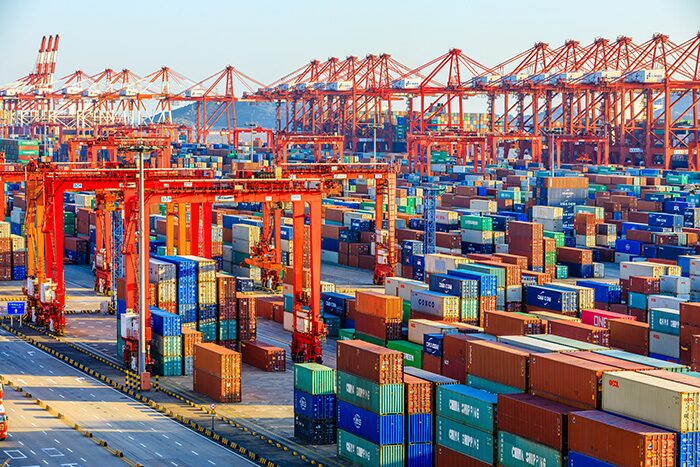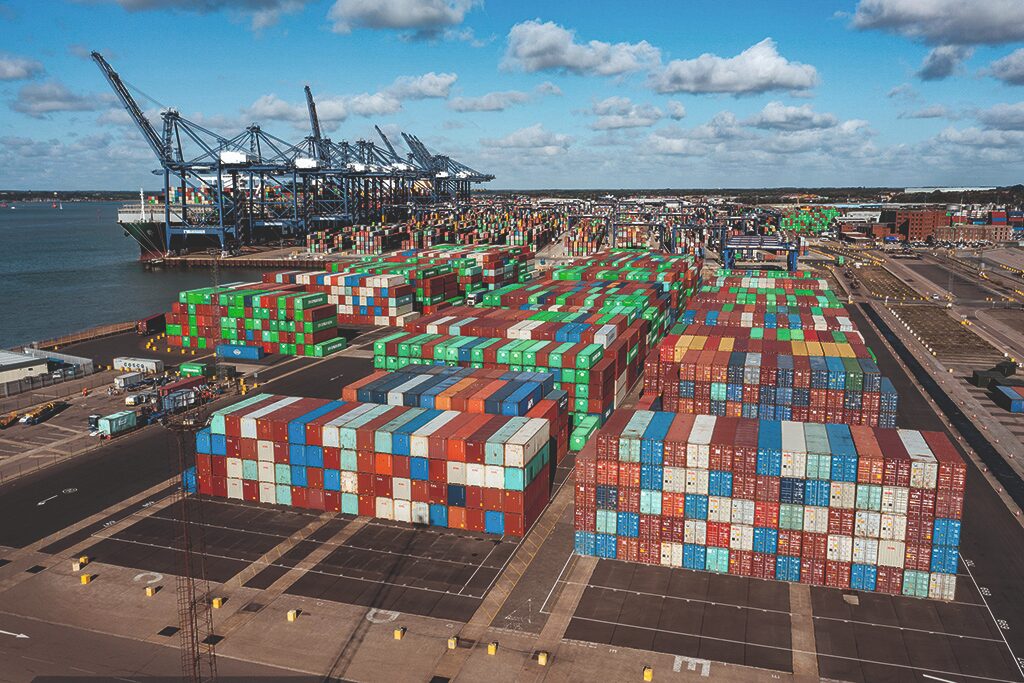Shipping goods from China to Greece can be a costly and complex process, especially if you are not familiar with the factors that affect shipping costs. In this article, we will explain how to calculate the shipping costs, compare different shipping methods, and choose the right shipping provider. We will also share some tips on how to reduce shipping costs and track your shipment.
Understanding the factors that affect shipping costs

The shipping costs from China to Greece depend on several factors, such as:
- The weight and volume of your goods: The heavier and larger your goods are, the more you will pay for shipping. This is because shipping providers charge based on the actual weight or the volumetric weight of your goods, whichever is higher. Volumetric weight is calculated by multiplying the length, width, and height of your goods and dividing by a factor that varies depending on the shipping method. For example, the factor for air freight is usually 6000, while the factor for sea freight is usually 5000.
- The distance and destination of your shipment: The farther your goods have to travel, the more you will pay for shipping. The destination also affects the shipping costs, as different countries have different customs regulations, taxes, and fees. For example, shipping from China to Greece may incur additional costs such as customs clearance, import duty, value-added tax (VAT), and port charges.
- The shipping method and speed of your shipment: The shipping method and speed of your shipment also affect the shipping costs, as different shipping methods have different advantages and disadvantages. For example, air freight is faster but more expensive than sea freight, while land transport is cheaper but slower than air freight. The shipping speed also depends on the availability and frequency of the shipping service, the transit time, and the customs clearance time.
- The shipping provider and service level of your shipment: The shipping provider and service level of your shipment also influence the shipping costs, as different shipping providers have different rates, discounts, and surcharges. For example, some shipping providers may offer lower rates for bulk shipments, while others may charge extra fees for fuel, security, insurance, or remote areas. The service level also affects the shipping costs, as some shipping providers may offer door-to-door service, while others may only offer port-to-port service.
Calculating weight-based shipping costs

To calculate the weight-based shipping costs from China to Greece, you need to know the actual weight and the volumetric weight of your goods, as well as the rate per kilogram of your shipping provider. You can use the following formula to calculate the weight-based shipping costs:
Weight-based shipping costs = Max(actual weight, volumetric weight) x Rate per kilogram
For example, suppose you want to ship a box of clothes from China to Greece by air freight. The box weighs 10 kg and has dimensions of 50 cm x 40 cm x 30 cm. The rate per kilogram of your shipping provider is $5. You can calculate the volumetric weight of the box by using the formula:
Volumetric weight = (Length x Width x Height) / Factor
Volumetric weight = (50 x 40 x 30) / 6000
Volumetric weight = 10 kg
Since the actual weight and the volumetric weight are the same, you can use either one to calculate the weight-based shipping costs:
Weight-based shipping costs = 10 x 5
Weight-based shipping costs = $50
Determining volumetric weight for bulky items

If you are shipping bulky items that take up a lot of space but have low weight, such as furniture, toys, or pillows, you may need to determine the volumetric weight of your goods. This is because shipping providers charge based on the volumetric weight of your goods, which reflects the space that your goods occupy in the shipping container or vehicle. To determine the volumetric weight of your goods, you need to measure the length, width, and height of your goods, and divide by a factor that varies depending on the shipping method. For example, the factor for air freight is usually 6000, while the factor for sea freight is usually 5000. You can use the following formula to determine the volumetric weight of your goods:
Volumetric weight = (Length x Width x Height) / Factor
For example, suppose you want to ship a sofa from China to Greece by sea freight. The sofa weighs 50 kg and has dimensions of 200 cm x 100 cm x 80 cm. You can determine the volumetric weight of the sofa by using the formula:
Volumetric weight = (200 x 100 x 80) / 5000
Volumetric weight = 320 kg
Since the volumetric weight is higher than the actual weight, you will pay for shipping based on the volumetric weight of your goods.
Additional fees and surcharges to consider
Besides the weight-based shipping costs, you may also need to consider additional fees and surcharges that may apply to your shipment from China to Greece. These fees and surcharges may vary depending on the shipping provider, the shipping method, the destination, and the type of goods. Some of the common fees and surcharges that you may encounter are:
- Customs clearance fee: This is a fee that covers the cost of processing your goods through customs. This fee may depend on the value, weight, and category of your goods, as well as the customs regulations of the destination country. For example, shipping from China to Greece may require a customs clearance fee of around $50 to $100 per shipment.
- Import duty: This is a tax that is levied on your goods based on their value, weight, and category, as well as the trade agreement between the origin and destination countries. For example, shipping from China to Greece may incur an import duty of around 5% to 20% of the value of your goods, depending on the type of goods and the tariff rate of the destination country.
- Value-added tax (VAT): This is a tax that is applied to your goods based on their value, as well as the VAT rate of the destination country. For example, shipping from China to Greece may incur a VAT of around 24% of the value of your goods, depending on the type of goods and the VAT rate of the destination country.
- Port charges: These are fees that cover the cost of handling your goods at the port of origin and the port of destination. These fees may depend on the weight, volume, and type of your goods, as well as the port facilities and services. For example, shipping from China to Greece may incur port charges of around $100 to $200 per container, depending on the size and type of the container and the port of origin and destination.
- Fuel surcharge: This is a fee that covers the cost of fuel for the shipping vehicle or vessel. This fee may depend on the distance, weight, and volume of your goods, as well as the fuel price and the fuel adjustment factor of the shipping provider. For example, shipping from China to Greece may incur a fuel surcharge of around 10% to 20% of the base shipping rate, depending on the shipping method and the fuel price and factor of the shipping provider.
- Security surcharge: This is a fee that covers the cost of security measures for the shipping vehicle or vessel. This fee may depend on the destination, weight, and volume of your goods, as well as the security level and the security charge of the shipping provider. For example, shipping from China to Greece may incur a security surcharge of around 5% to 10% of the base shipping rate, depending on the shipping method and the security level and charge of the shipping provider.
- Insurance fee: This is a fee that covers the cost of insuring your goods against loss, damage, or theft during transit. This fee may depend on the value, weight, and volume of your goods, as well as the insurance coverage and the insurance rate of the shipping provider. For example, shipping from China to Greece may incur an insurance fee of around 1% to 3% of the value of your goods, depending on the type of goods and the insurance coverage and rate of the shipping provider.
- Remote area surcharge: This is a fee that covers the cost of delivering your goods to a remote or inaccessible area. This fee may depend on the distance, weight, and volume of your goods, as well as the remoteness and the remote area charge of the shipping provider. For example, shipping from China to Greece may incur a remote area surcharge of around $50 to $100 per shipment, depending on the location and the remote area charge of the shipping provider.
Comparing different shipping methods – air, sea, and land

When shipping from China to Greece, you have three main options for shipping methods: air, sea, and land. Each shipping method has its own advantages and disadvantages, depending on your budget, time, and preferences. Here is a brief comparison of the three shipping methods:
- Air freight: Air freight is the fastest and most reliable shipping method, as it can deliver your goods from China to Greece in as little as 3 to 7 days. However, air freight is also the most expensive shipping method, as it charges based on the volumetric weight of your goods, which can be much higher than the actual weight. Air freight is also subject to more fees and surcharges, such as fuel, security, and insurance. Air freight is best suited for urgent, high-value, or perishable goods that require speed and security.
- Sea freight: Sea freight is the cheapest and most eco-friendly shipping method,
- as it can transport large quantities of goods at low costs. However, sea freight is also the slowest and most unpredictable shipping method, as it can take up to 30 to 60 days to deliver your goods from China to Greece. Sea freight is also subject to more risks and delays, such as weather, piracy, and congestion. Sea freight is best suited for bulky, heavy, or non-urgent goods that require low costs and low carbon footprint.
- Land transport: Land transport is the most flexible and accessible shipping method, as it can deliver your goods from China to Greece by road or rail. However, land transport is also the most complicated and limited shipping method, as it requires multiple transit points, border crossings, and documentation. Land transport is also subject to more regulations and restrictions, such as weight, size, and safety. Land transport is best suited for short-distance, small-volume, or special goods that require convenience and versatility.
Choosing the right shipping provider
Once you have decided on the shipping method, you need to choose the right shipping provider for your shipment from China to Greece. There are many shipping providers in the market, each offering different rates, services, and reputations. Here are some factors to consider when choosing the right shipping provider:
- The price and quality of the shipping service: The price and quality of the shipping service are the most important factors to consider when choosing the right shipping provider. You need to compare the shipping rates, discounts, and surcharges of different shipping providers, as well as the shipping speed, reliability, and security of their shipping service. You need to balance the trade-off between the price and quality of the shipping service, and choose the one that meets your budget and expectations.
- The customer service and support of the shipping provider: The customer service and support of the shipping provider are also crucial factors to consider when choosing the right shipping provider. You need to check the availability, responsiveness, and professionalism of the shipping provider’s customer service and support, as well as the feedback and reviews of their previous customers. You need to choose a shipping provider that offers excellent customer service and support, and can handle any issues or inquiries that may arise during the shipping process.
- The experience and reputation of the shipping provider: The experience and reputation of the shipping provider are also significant factors to consider when choosing the right shipping provider. You need to check the history, track record, and credentials of the shipping provider, as well as the recognition and awards that they have received. You need to choose a shipping provider that has extensive experience and reputation in the shipping industry, and can deliver your goods safely and efficiently.
Tips for reducing shipping costs

Shipping from China to Greece can be expensive, but there are some tips that you can follow to reduce your shipping costs. Here are some of them:
- Plan ahead and book early: Planning ahead and booking early can help you save on shipping costs, as you can avoid peak seasons, last-minute surcharges, and limited availability. You can also take advantage of early-bird discounts, special offers, and lower rates that some shipping providers may offer for advance bookings.
- Optimize your packaging and labeling: Optimizing your packaging and labeling can help you save on shipping costs, as you can reduce the weight and volume of your goods, and avoid unnecessary fees and delays. You can use lightweight, durable, and recyclable materials for your packaging, and fill any empty spaces with cushioning or filler materials. You can also use clear, accurate, and complete labels for your goods, and include the necessary information such as the sender, receiver, destination, contents, value, and customs declaration.
- Consolidate your shipments: Consolidating your shipments can help you save on shipping costs, as you can share the space and cost of the shipping container or vehicle with other shippers. You can use a freight forwarder, a third-party agent that arranges and coordinates the shipping process for multiple shippers, and offers lower rates and better services than individual shipping providers. You can also use a groupage service, a service that combines and transports small shipments from different shippers in a single container or vehicle, and charges based on the weight and volume of each shipment.
- Negotiate and compare your shipping options: Negotiating and comparing your shipping options can help you save on shipping costs, as you can get the best deal and value for your shipment. You can negotiate and compare the shipping rates, discounts, and surcharges of different shipping providers, as well as the shipping speed, reliability, and security of their shipping service. You can also negotiate and compare the shipping terms and conditions, such as the insurance coverage, the liability limit, and the compensation policy of different shipping providers.
Tracking and managing your shipment

Tracking and managing your shipment from China to Greece is an essential part of the shipping process, as it can help you monitor the status and location of your goods, and ensure a smooth and successful delivery. Here are some ways to track and manage your shipment:
- Use the tracking number and online tools: Using the tracking number and online tools can help you track and manage your shipment, as you can access real-time information and updates about your goods. You can use the tracking number, a unique code that identifies your shipment, and enter it on the website or app of your shipping provider or freight forwarder. You can also use online tools, such as Google Maps, Bing Maps, or GPS, to locate and visualize your shipment on a map.
- Use the shipping documents and invoices: Using the shipping documents and invoices can help you track and manage your shipment, as you can verify and validate the details and costs of your goods. You can use the shipping documents, such as the bill of lading, the commercial invoice, and the packing list, to check the description, quantity, value, and destination of your goods, as well as the shipping provider, the shipping method, and the shipping date. You can also use the invoices, such as the freight invoice, the customs invoice, and the VAT invoice, to check the shipping costs, taxes, and fees of your goods, as well as the payment method and the payment date.
- Use the customer service and support: Using the customer service and support can help you track and manage your shipment, as you can communicate and cooperate with the shipping provider or freight forwarder. You can use the customer service and support, such as the phone, email, chat, or social media, to ask questions, report problems, request changes, or provide feedback about your shipment. You can also use the customer service and support, such as the online portal, the dashboard, or the notification system, to access and manage your shipment information and documents, as well as to receive alerts and reminders about your shipment.





